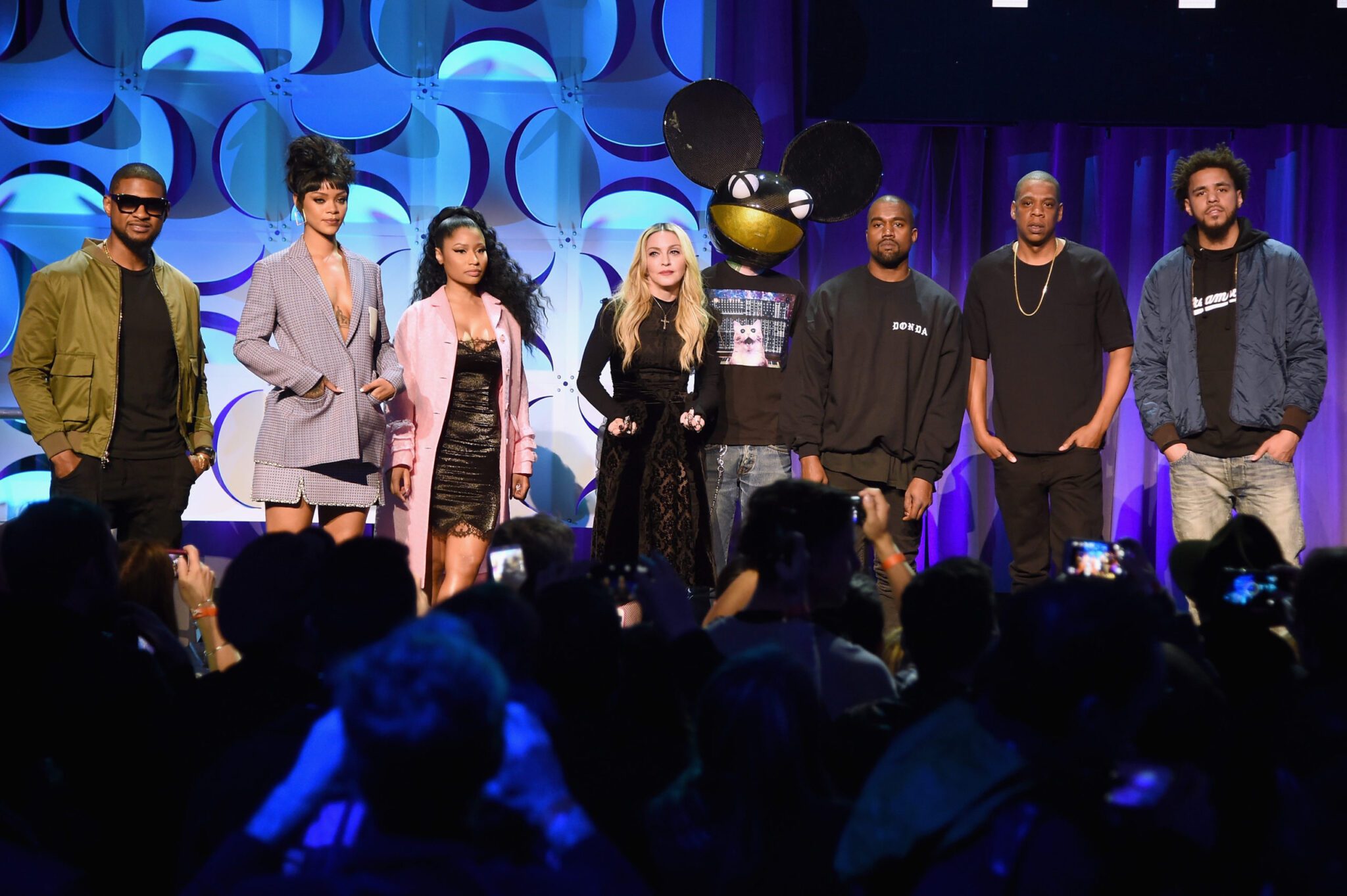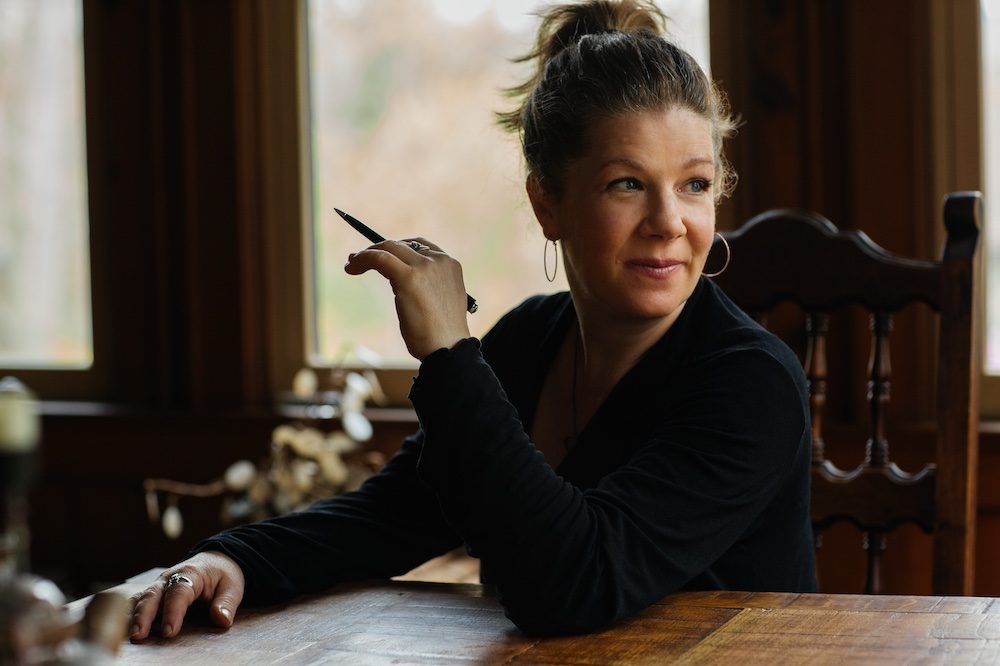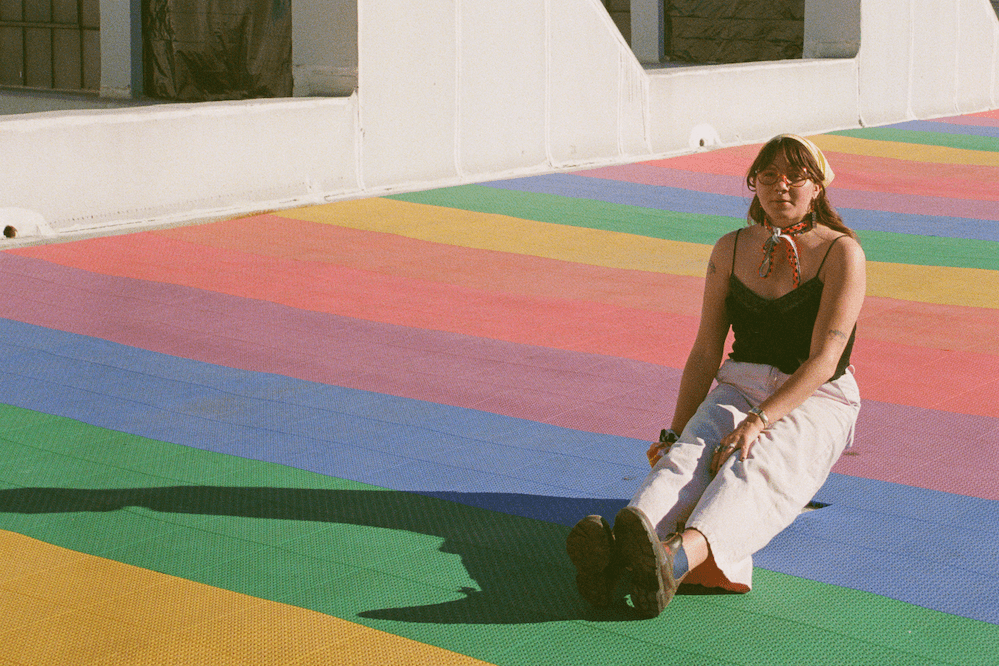
Marissa Nadler is too shy to do karaoke. Despite the loveliness of her timeless-sounding lilt, Nadler turned to Twitter for encouragement before “chickening out” on a rendition of Chris Isaac’s “Wicked Game”.
But that self-consciousness isn’t present on her sixth proper album and first release for Sacred Bones/Bella Union. Entitled July, Nadler’s haunting vocals deliver brashly poetic lyrics, aggressively examining the personal change that comes about during the painful dissolution and subsequent rebuilding of relationships.
The startling work she’s produced in the past decade traces the events of her life through the lens of a storyteller, rich with recurring characters both real and imagined. Her latest record examines self-destructive tendencies, complicated entanglements, vicious environments, and the hope that can exist within despair, each subject explored with a depth and tenderness that few singer-songwriters can match. We talked with Nadler about how her career got started, the effect that self-releasing her last album had on her work and her psyche, and what her latest record means to longtime fans and new listeners alike. July is out on February 4th, and you can stream the record over at NPR.
AF: To start, I’d like to talk about your first records on Eclipse and working with Ed Hardy.
MN: Back about… it must have been 11 or 12 years ago, I recorded my first record when I was still in graduate school at RISD. And I sent it to this guy Jeffrey Alexander who ran this label called Secret Eye in Providence. He hooked me up with a couple contacts and I emailed Ed Hardy and Ed got back to me and he put the first record out. He’s lovely to work with. I actually had spent a summer living in Bullhead, AZ working for his label too. So we’re pretty close. I think he opened up a lot of doors for me in terms of the underground music scene.
AF: What made you decide to pursue music after so much training as a visual artist? How did your time in art school inform what you do as a musician?
MN: Well I had been writing songs as a teenager. And I had a little punk band in high school. I had like a mini, a four-track recorder… probably there are some tapes somewhere in my parent’s house but… I just got more and more serious about my songwriting when I was at RISD. I don’t know if maybe it was a little bit of the disillusionment with the fine art world. The more and more I got intimidated by being this hip fine artist, the more the honesty of music started to appeal to me and so my interests kinda switched and I think it was a way for me to deal with the stress of such a hardcore fine art academy. So I started playing open mic nights and really digging around Providence. I really consider Providence my first hometown. It was where I played all my first shows.
I do think my fine arts training does have a lot to do with the way I write my songs, because the way I see the world is still as a very visual person. I’m not an analytical thinker, I’m still a painter. So when I write lyrics it’s a very painterly, expressive way of writing.
AF: You exercised a bit more of your left brain in self-releasing your self-titled record and The Sister EP.
MN: Yeah. That shit really burnt me out. I think a lot of people would be shocked to know that I’m an incredibly OCD person. I’m very detail-oriented, but I was spending so much time in front of the computer reading my own reviews and dealing with the distributors and the post office stuff that I just got really depressed and I felt like I needed some advocates. I stopped believing in my own music. I just started to get really depressed, I think. It was too much of that side of the brain and not enough of art-making.
AF: I can see how that would be a lot to deal with. Do you still view those albums as successes from an art-making standpoint? Or was it tarnished by the fact that you had all this other stuff to deal with on top of it?
MN: I definitely view the self-titled record as a success. I’m really proud of that record, I’m proud of how far it reached, it being a self release. The Sister I think of more as an EP that I, lacking a manager to tell me not to release it and lacking anybody to say you know, this isn’t ready, like… that’s what you run into when you’re self-releasing records. Nobody told me, you know, “Hey Marissa, this doesn’t really feel like a record” and so that’s what I kind of benefit from now, having a label, having some people to bounce things off of. But I’m very proud of the self-released record, I think it was a really good comeback for me after some hardships. I definitely stand by that one. There’s a couple songs on The Sister I like but it wasn’t a “record” the way that July is a record. Or the way that the self-titled is.
AF: A big part of your ability to self-release a record came from crowd-funding and via your tremendous fan base, which was built on the continuing narratives you tend you revisit across albums. You’re one of the few artists who has created a ten-year, career spanning narrative and it feels really unique in an industry that’s more singles-focused. Do you ever feel like you’re struggling against that sort of mentality that craves hits and rarely has the attention span to delve into a body of work?
MN: I think I have a dual interest when I write songs. It may seem like they’re continued narratives because I’m writing about my own life. Our own lives are a continued narrative. But, especially with this new record, a big thing for me was asking “Are these songs catchy?” I’m definitely interested as a songwriter in songs that can stand alone regardless of an album and regardless of the body of work. I think about whether each song on the record is good enough to stand on its own while maintaining my own integrity as a songwriter. So yeah, I think there’s a lot of things that go into play with what makes the cut.
AF: Well, with this latest record it does feel as though most of the character arcs have been put to bed. It seems like you’re less interested in mythologizing your experiences. You’re using first person more, or addressing singular individuals directly.
MN: Yeah, definitely when I was younger I was more afraid to write in the first person. I didn’t want to be thought of as a confessional singer-songwriter, like coffee shop bullshit. I mean, I’ll be self-deprecating and say I was a little pretentious on my first record, like covering Pablo Neruda and Edgar Allen Poe. And then I started listening to more and more old-time country music and my tastes changed and I wasn’t afraid to confront what I really wanted to write songs about without the mythological shroud, if you will.
AF: It seems a lot like this record specifically is more about a journey. There are literal moments on tracks like “Drive” or on “I’ve Got Your Name” when you sing about changing dresses in a gas station. But there’s also explorations on personal, emotional journeys, as with “Anyone Else”, where you’re coming to terms with who does and doesn’t belong in your life. How have your journeys shaped this record?
MN: There’s so much personal stuff on this record. “Anyone Else” is definitely about someone that ‘done me wrong’; “Desire” is about infatuation… I mean, there’s a lot of real-life details in this.
AF: The lyrics are very rich, which goes back to what you were saying about painterly songwriting. I wanted to talk about that line in “Firecrackers” in which you reference an attacker whom you’re confronting. It feels like an important cornerstone; the title of the record comes from this song.
MN: That’s about me being, especially during that period of my life before I stopped drinking, incredibly self-destructive. So that song kind of speaks to the self-destructiveness ruining my relationship. My boyfriend and I broke up on July 4th two years ago. And we got back together about a year ago, so the record has a lot to do with that. Side A has a lot to do with the ups and downs of that relationship. And Side B has a lot to do with people in between him and… him.
AF: It’s so funny that you’re releasing a record called July when it is literally 8 degrees outside. Do you feel like there’s such a thing as a winter song or a summer song? Was it more that the relationship was an impetus for making the record?
MN: Yeah, I definitely don’t think this a summer record at all. If there’s any season I have a lot in common with it’s winter. But the reason I called it July was very specific in that I recorded the record in July and everything about the songs had to do with a year’s journey from one July to the next.
AF: I wanted to talk a little about the video for the record’s first single, “Dead City Emily.” Can you tell me more about it?
MN: Well I try only to work with people that I think are really talented artists. I first met Derrick Belcham because he used to shoot videos for this French site Blogothèque. I met him through my friend Cat Martino. I really like his aesthetic. He’s worked with Julianna Barwick, and White Hinterland and a lot of artists. The dancer, her name is coincidentally Emily but that has nothing to do with the song. In fact, it’s totally fictional, a make-believe conversation with a friend that was kind of a narrative device I used to write the song.
AF: If it’s not about a specific person, was there a particular city you had in mind while writing it?
MN: My own.
AF: That being Boston?
MN: Yeah well, not even that. The feeling I was trying to evoke was the feeling of coming to terms with the place that you live and just feeling depressed and finding no joy in anything. And then the contrast is in the chorus where it’s “oh, I saw the light today, opened up the door…” I struggle with mood swings and ups and downs and it’s kind of about realizations you have about relationships to your city.
AF: I definitely have that sort of reaction to NYC. I actually don’t think I ever want to live in a place where I don’t have a kind of volatile relationship with living there. I’ve never actually been to Boston, but it seems like there’s a lot of good music coming out of that scene. Although most of what’s getting attention is DIY-scene punk stuff – Speedy Ortiz, Potty Mouth. Because you’re making music that’s so different – more timeless, less tied to a scene – do you ever feel like an outsider or distanced from your community?
MN: Definitely. To be honest, I love Boston, but I have what I call a hometown curse. I had more trouble getting a gig here on my opening record release tour than anywhere else in the world. I’m not talking just the U.S. I don’t know what it is. I think maybe it’s because I’m not a networker or a shmoozer. I would love to be embraced more, I’m hoping it changes with this new record. It’s kind of a tough town if you’re not like heavy heavy or super folky. I’ve always been somewhere in between.
AF: Well I think the irony of that is that while your music is often referred to as “dream-folk” or that there’s this permeating winsome quality to what you do, lyrically you get pretty dark and are a lot more aggressive and emotionally confrontational, almost more like a punk band in attitude. Do you ever feel pigeonholed by those descriptors?
MN: Yeah, I mean, I guess people are always gonna have some genre tag they want to stick on you but my hope is just that people listen beyond the genre trappings. My labels both asked me what genre I wanted to be tagged for on iTunes and I was like “I don’t fucking know…. I guess like, alternative rock, just don’t put folk, whatever you do”. And they were like “okay, okay, we got it”.
AF: How did your connections with Sacred Bones and Bella Union come about? Sacred Bones kind of has a reputation for associating with edgy projects.
MN: Well with Sacred Bones, when I finally was like “I can’t do this anymore, this self-releasing, I’m going to give up making music” it kind of dawned on me that maybe I should just try signing to another label. So I went back through my emails and Caleb had written me years ago and I was like “Ohhhh, that’s that awesome label with Jim Jarmusch on it” and so I wrote him back and he said “Yeah, let’s do it!” With Bella Union, I saw on Twitter that Simon Raymonde had played me on his radio show,l so my manager put me in touch with him. It was really cool how it happened this late in my career to get signed to two really great record labels. I feel like I’ve definitely earned it.
AF: It’s definitely been a long time coming. Do you feel like in working with the label they had any influence over the material or did you approach with the record already laid out?
MN: They definitely did not influence the material. I finished the record and then gave it to them and they hadn’t heard any of the demos or anything like that. It was really important to me to have 100% creative control.
AF: Was there anything about working with them that allowed you to do things you hadn’t done on prior records?
MN: No, I think I’ve always just done whatever I wanted to do. That’s maybe gotten me into some trouble in the past.
AF: The new album is gorgeous. I love how roomy it feels, the atmosphere built by the string arrangements. Do you get to have a hand in the production at all?
MN: Well, no. The producer’s name is Randall Dunn. He’s worked with bands like Earth and Sunn O))) and he helped with that stuff. I had written all the songs and all the harmony vocals that I sing on the record but instrumentation was a joint venture between Randall’s ideas and me saying “yes, that sounds like a good idea”.
AF: Was it hard for you to let someone else in on that process?
MN: No, because I’ve always worked with a producer on my records. I think that word is confusing to people. In the pop idiom the producer is very different than in the indie rock idiom.
AF: You’ve had a hand in a bunch of really great collaborations, working with Angel Olsen, and Emily Jane White to name a few. What’s different about working on those sorts of projects?
MN: Well, they’re really different. With Emily it was really just background vocals. It wasn’t as much of a collaboration as I was a guest player. With Angel it was different, it was more of a collaboration. We got in touch after meeting years ago, and I wrote her to congratulate her on Acrobat and she was like “Oh, we should do songs together, let’s do covers” and so we sent cover songs back and forth over the internet to record those harmony vocals. It was really fun; I like doing stuff like that, although it’s very different than doing my own work. It’s probably less of an emotional investment.
AF: Do you have any collaborations coming up?
MN: Not a lot right now. I’m hoping somebody gets in touch and says “Hey, why don’t you score my film?”
AF: You want to do film scores?
MN: Yeah, that would be really fun.
AF: What kind of film would you want to score?
MN: Just some kind of sad drama. I think that would make the most sense.





